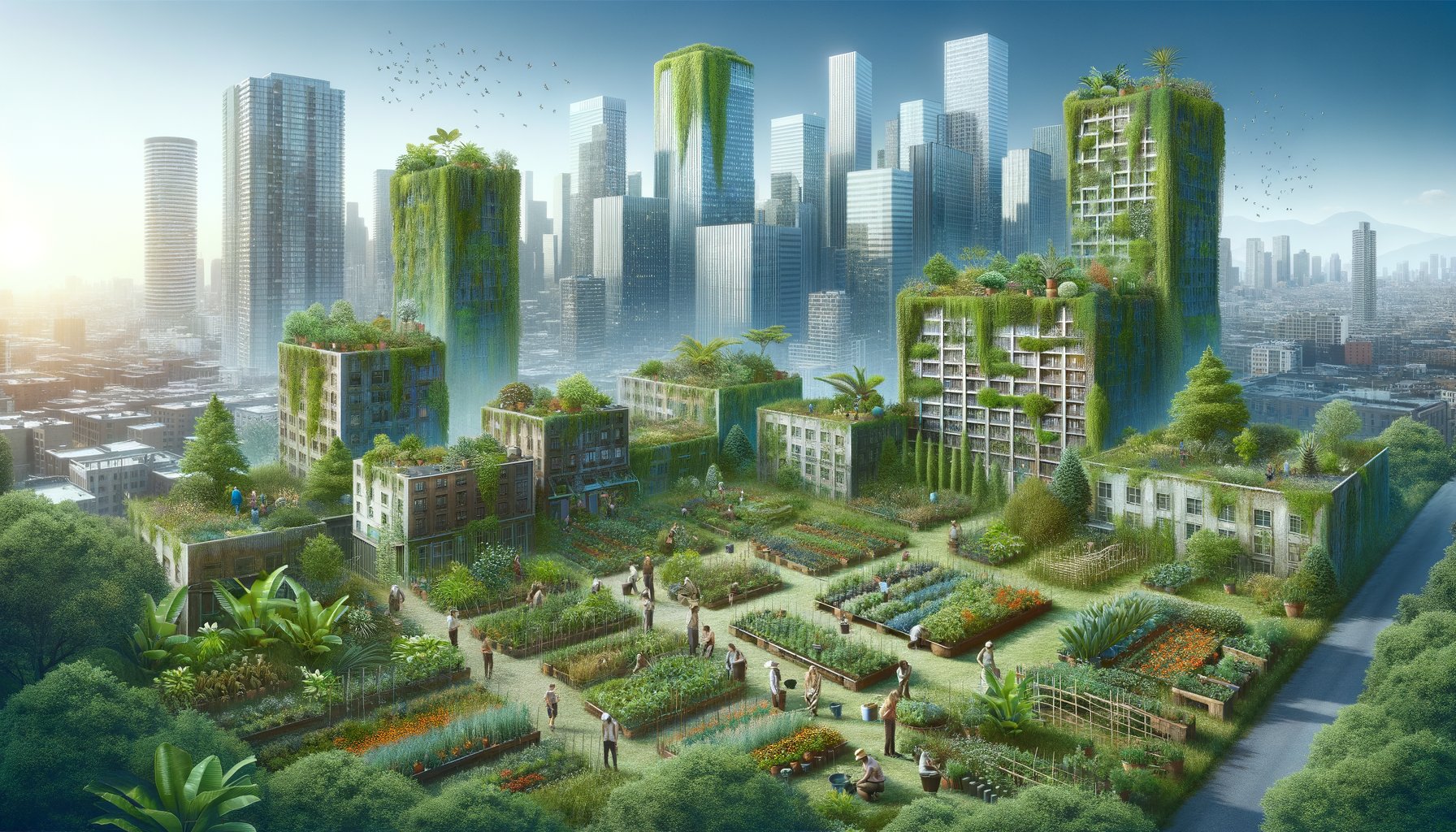Physical Address
304 North Cardinal St.
Dorchester Center, MA 02124
Physical Address
304 North Cardinal St.
Dorchester Center, MA 02124

As we navigate through the hustle and bustle of city life, it’s easy to feel disconnected from nature. The concrete jungles we inhabit often seem devoid of greenery, with towering buildings replacing trees and traffic noise drowning out bird songs. However, there’s a growing trend that’s breaking this norm – urban gardening.
Urban gardening is an innovative solution for city-dwellers who yearn for a touch of nature in their lives. It’s more than just cultivating plants; it’s about creating green spaces in the heart of our cities, promoting biodiversity, enhancing our wellbeing and fostering community spirit.
In essence, urban gardening involves growing plants in an urban environment. This can be done in various ways such as using containers, vertical gardens on walls or rooftops, community gardens or transforming derelict spaces into vibrant green areas. The type of plants grown can range from flowers to vegetables and herbs.
1. Promotion of Biodiversity: By creating green spaces within cities, urban gardens attract a variety of insects and birds thereby promoting biodiversity. They become mini ecosystems within the concrete jungle.
2. Improving Mental Well-being: Numerous studies have shown that interaction with nature has a positive impact on mental health by reducing stress levels and improving mood.
3. Fostering Community Spirit: Community gardens provide a place for people to come together, work towards a common goal and create stronger neighbourhood ties.
Your choice of plants will largely depend on the space available and the amount of sunlight it receives. For small spaces with plenty of sunlight, vegetables like tomatoes, peppers and herbs are a great choice. If your space is shaded, consider plants like ferns or hostas.
Urban gardens often have to contend with limited space. However, this doesn’t mean you can’t have a thriving garden. Vertical gardening is an excellent solution for small spaces. This involves growing plants upwards on trellises or walls instead of spreading them out horizontally.
Composting is a crucial aspect of urban gardening. Not only does it provide nutrient-rich soil for your plants but it also helps reduce waste that would otherwise end up in landfill sites.
Sustainability should be at the heart of any urban garden. This means using water wisely by installing drip irrigation systems or collecting rainwater, choosing native plants that require less maintenance and attract local wildlife, and avoiding chemicals by opting for organic pest control methods.
The future looks bright for urban gardening. With more people recognising its benefits and cities encouraging their residents to create green spaces, we can expect to see more nature in our cities in the coming years.
Urban gardening has the power to transform our cities from grey concrete jungles into lush green oases filled with life and vibrancy. It’s not just about bringing nature back into our lives; it’s about creating healthier, happier communities where everyone can thrive.